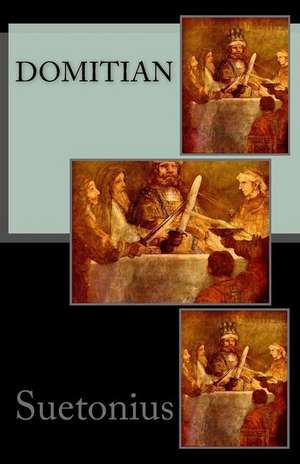Domitian
Autor Suetoniusen Limba Engleză Paperback
Preț: 62.98 lei
Nou
Puncte Express: 94
Preț estimativ în valută:
12.05€ • 12.42$ • 10.18£
12.05€ • 12.42$ • 10.18£
Carte indisponibilă temporar
Doresc să fiu notificat când acest titlu va fi disponibil:
Se trimite...
Preluare comenzi: 021 569.72.76
Specificații
ISBN-13: 9781517132804
ISBN-10: 1517132800
Pagini: 40
Dimensiuni: 129 x 198 x 2 mm
Greutate: 0.05 kg
Editura: CREATESPACE
ISBN-10: 1517132800
Pagini: 40
Dimensiuni: 129 x 198 x 2 mm
Greutate: 0.05 kg
Editura: CREATESPACE
